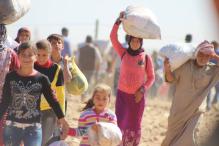This article by Ali Al Tuma and Adam Day was originally published International Policy Digest.
This summer, the Iraqi government has executed every ISIS convict sitting on death row, and has called on all foreign governments to take back more than 1,000 children of imprisoned ISIS fighters. Despite calls of alarm from the human rights community, Baghdad has continued to take an extraordinarily harsh line on all those affiliated with ISIS, not only fighters, but also cooks, cleaners and “wives.”
With Iraq now dominated by Shia politicians, there is a risk that this aggressive, sweeping approach towards ISIS-affiliated individuals might further alienate the Sunni population and limit the possibilities for Sunni/Shia reconciliation. But according to a survey of the major Shia communities of Iraq, there is an opening for the Iraqi leadership to adopt a more nuanced approach that could address human rights concerns and foster greater prospects for reconciliation in post-ISIS Iraq.
The Shia we surveyed make important distinctions between the role and type of association with ISIS that are not currently reflected in the government’s anti-terrorism approach. For example, when asked to choose categories of ISIS-linked civilians who deserved the most severe punishment, less than five percent of responses chose wives of ISIS fighters, and only ten percent selected cooks and other support staff of ISIS. This indicates that many Iraqis may not take a blanket view of an ISIS association, and may be willing to support a more nuanced approach.
Our findings point to the need for a review of the overbroad approach to ISIS affiliates as a crucial way for Iraq’s leadership to build peace across the sectarian divide.


